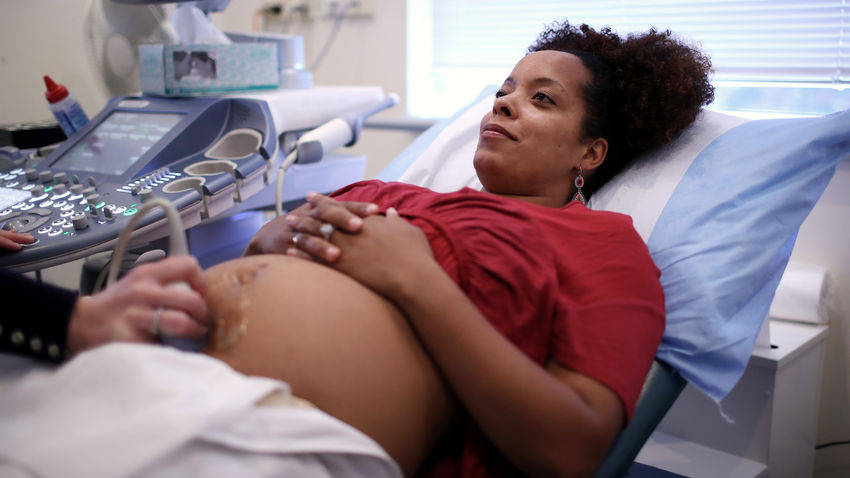
The College of Public Health’s Nursing Department is enlisting students from Temple’s School of Theater, Film and Media Arts to assist in a research study that will explore a troubling issue: bias and racism in obstetrical care. Student actors will portray pregnant patients and healthcare providers in the Nursing Department’s Simulation Lab, participating in simulated clinical scenarios where racial bias occurs. The clinical scenarios are based in part upon interviews with community residents from North Philadelphia who have experienced or witnessed discrimination or mistreatment.
The aim of the research, funded by a grant from the Pennsylvania Higher Education Nursing Schools Association (PHENSA), is to prepare pre-licensure nursing students for transition to practice through simulation-based education and improve patient outcomes for Black birthing families. From the results of the study, faculty will refine the training as an intervention that might be a useful component to nursing education. Twenty nursing students, as the study’s subjects, will participate as nurses in the simulation experiences. They will be prepared to recognize and respond to incidents of bias and racism based on their simulation pre-work to be completed before the simulation experience.
“The term we use is helping them to be ‘active bystanders,’” explains assistant professor Lauren Gabrielle Johnson, a nurse scientist whose work has focused on women’s health and health equity. “If they're observing encounters of disrespect or bias, how can they use these tools to best advocate on behalf of the patient?”
The issue of bias and racism in healthcare is real, and it has serious impact. Maternal death rates for Black women nationally are 3 to 4 times higher than for white women, a disparity that exists regardless of the mothers’ age, income or education. Research has found 54% to 78% of pregnant Black women reporting disrespectful and racist treatment in maternity care, which by increasing mistrust in the healthcare system can cause delays in treatment and higher risk.
“In Philadelphia, there are some alarming maternal healthcare statistics regarding cardiovascular conditions and hemorrhage being associated with pregnancy-related deaths,” says Susan Kilroy, director of the Nursing Simulation Lab and nurse faculty. “Current research demonstrates Black birthing families are not being listened to."
The students as study subjects will be given preparatory work to learn about racism, bias and social determinants of health in the context of obstetrics and gynecology. This prep work will include tools to respond to scenarios as an active bystander and to advocate on behalf of patients and families. The preparation is also designed to protect the psychological safety of the students, Johnson says, so they feel prepared walking into the simulation experience and ultimately into real-life situations.
“We find that students, especially when it comes to topics of race bias, don't always know how to take action. It makes them feel uncomfortable. They might be able to identify that a situation is incorrect and wrong, but then they don't know how to advocate. So this marries together our backgrounds in simulation and women's health to try to give students the behavioral and communication skills to address what we know is a big factor in maternal mortality and disparities,” Johnson says.
The nursing students will be debriefed and surveyed after the exercise to capture their reflections, feedback and results.
“We're going to have them acknowledge what they were thinking and give them the skills to handle those thoughts and feelings,” Kilroy explains.
Kimmika Williams-Witherspoon, professor of Theater Studies & Playwriting and senior associate dean of the School of Theater, Film and Media Arts, is helping lead the recruitment of the drama students for a planned start to the study in March. Drama students will work from scripts informed by interviews with the community advisory board and also will improvise while interacting with the nursing students.
Kilroy and Johnson believe training to identify and counteract bias and racism is vital for nurses.
“Even if they don’t practice in OB, they might be seeing this in other realms of their nursing practice,” Johnson says. “There is systemic racism, and there’s also interpersonal racism that occurs. It’s an area where we feel we can make an impact as educators in preparing the next generation of nurses.”
